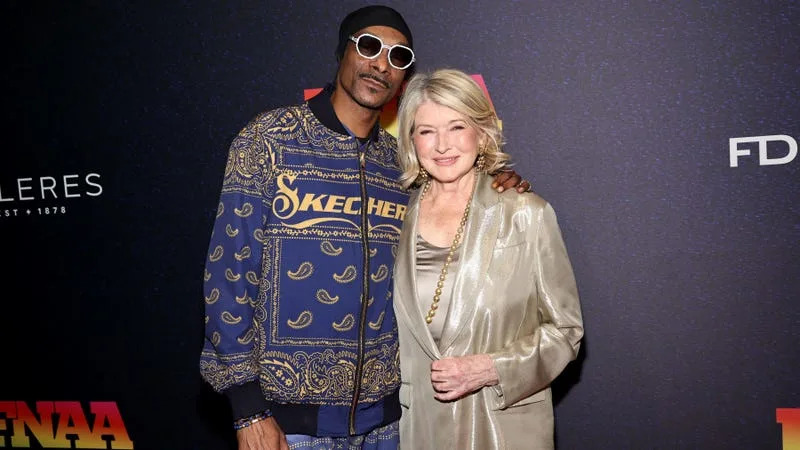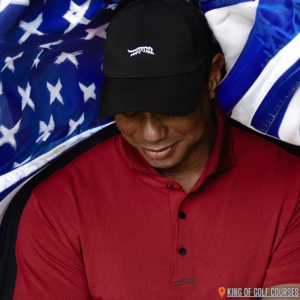Peep the state of early-90s West Coast Hip-Hop legends: Tupac Shakur is apparently not allowed to rest 27 years after his death. Suge Knight will likely croak in prison. Warren G is probably somewhere drinking Mai Tais collecting “Regulate” residuals for the rest of his days.
Someone somewhere might be excited about a new Tha Dogg Pound album and no one under the age of 35 knows who RBX or D.O.C. are. Even Dr. Dre is in the cut somewhere, probably quietly trying to evade the coming #MeToo Hip-Hop reckoning.
Meanwhile, Snoop Dogg is gearing up to become an analyst for the 2024 Summer Olympic games in Paris. Because, apparently, the Olympic Committee wasn’t too worried about his profane-laden commentating that was the best part of the 2020 Mike Tyson-Roy Jones, Jr. fight.
Can you recall a time in which Calvin Broadus, Jr. wasn’t on your screen for some reason? Ever since his 1992 breakout on Dr. Dre’s classic debut album “The Chronic,” he’s reinvented himself in ways that have appealed to mainstream (read: white) America while still managing to remain endearing to Black folks.
There’s a joke somewhere about how Snoop, 52, never saw a paycheck he didn’t turn down. (Remember his chart-topping hardcore porn film?) But there’s no laughing at his estimated $160 million net worth – which, by the way, he keeps in the family: Shante Broadus, Snoop’s bae since the 1980s and his wife of nearly 27 years, is his manager.
Snoop’s lanky stature and disarming smile make him one of the less-scary 6-foot-4 Black men for white folks…this was first illuminated through his relationship with Martha Stewart, whom he joined on “The Martha Stewart Show” back in 2008 to make mashed potatoes. It was an endearing union that exists to this day.
His ability to build a brand around a federally illegal substance also endeared him to the countless consumers of that substance across all cultures: There’s his venture with Atlas Global, a Canadian cannabis brand that can use his immortal likeness on their packaging, as well as his less on-the-nose pet product line Snoop Doggie Doggs, with its “Munchies” treats.
Everyone hooked onto that moment in November when Snoop announced he was “giving up smoke,” only to reveal it was a collaboration with Solo Stove, a smokeless fire pit company whose marketing division deserves all the raises.
Products and marketing aside, Snoop’s 1990s music output transcended racial boundaries: Somewhere in upper Wisconsin, there’s a group of 40-something white women at a bachelorette party singing “Gin and Juice” in unison, word for word.
Some of his later music ventures landed, like his impressive 2018 Gospel album “Bible of Love,” while some did not (the less said about his “Snoop Lion” reggae era, the better). But he’s still dropping albums – 70 to date if you count his studio, mixtape and collaboration projects – and made Billboard history in 2022 as one of only three artists to land Top 10 hits in the last four decades following his guest role on Benny Blanco’s “Bad Decisions.”
Snoop is even beloved enough to weather unintentionally hilarious moments, like last week’s video of him doing the “I dunno” shoulder shrugs.
He’s earned the cachet to fearlessly wade into political waters, which many chart-topping artists actively avoid for fear of damaging their brand. He slammed Donald Trump and Kanye West at a time when most rappers still worked to maintain their relationship with the latter.
Snoop also speaks out about equity for Black artists, as he did with the New York Times in 2021:
I just don’t understand how you only get this little bit amount of money per stream. I just don’t understand the dynamics of those numbers, and how they can create these systems without Black people up top, while Black people are the ones generating the most money from these systems through the music. So I’m just trying to figure out when they’re going to cut us in in the beginning, as opposed to always letting us be the ones who get it to a point where these platforms can sell for billions of dollars, and then the Black people that made it famous get nothing.Just like the TikTokers. All of the young Black content creators on TikTok have boycotted because they see that when they do the dances they don’t get the attention or the money. But as soon as the white dancers do it, it’s the biggest [expletive] in the world and they on Jimmy Fallon. That’s not fair. It’s not cool to just keep stealing our culture right in front of us and not include us in the finances of it all.
Most Black artists can’t speak out like this and not be largely condemned by the white right. But not Snoop: White people, at once, take him seriously, can laugh at him, are entertained by him and are endeared to him.
Find me another rapper who fits that bill.
News
If you wanted Tiger Woods’ Sun Day Red polo, you are too late
Woods’ brand, Sun Day Red, launched its second line of the month and the iconic red polo was one of a number of items to fly off…
If he can bring Tiger Woods from 2000 to present in 2024, he will earn prize money beyond anyone’s imagination.
Tiger Woods will earn $92 million in 2024 if he achieves results like the 2000 season. Scottie Scheffler, who is currently ranked No. 1 in the world,…
Tiger Woods humorously revealed the origin of his signature red and black outfit
The signature red and black outfit seems to have brought a “supernatural” power to help Tiger Woods win tournaments. The image of Tiger Woods, wearing his signature…
It is clear why Tiger Woods has not been announced as captain of the US Ryder Cup team
According to many sources, Tiger Woods will be the captain of the US team at the 2025 Ryder Cup, but no official announcement about this has been…
We give you the answer to why Tiger Woods received a special admission into the U.S. Open 2024
Learn about US Open rules and approvals to understand direct entry to the US Open. On Thursday, May 2, Tiger Woods received a special dispensation to play…
WHAT IS SO MUCH MONEY FOR? – That’s what we say when looking at the most expensive cars of legendary golfer Tiger Woods
The car collection of great golfer Tiger Woods includes famous cars such as Lamborghini Murcielago LP640, Porsche Carrera, Cadillac Escalade, Mercedes S65,… 48-year-old American golfer Tiger Woods…
End of content
No more pages to load







